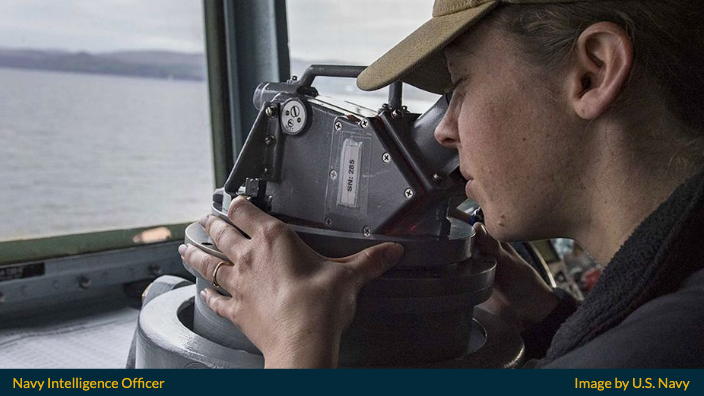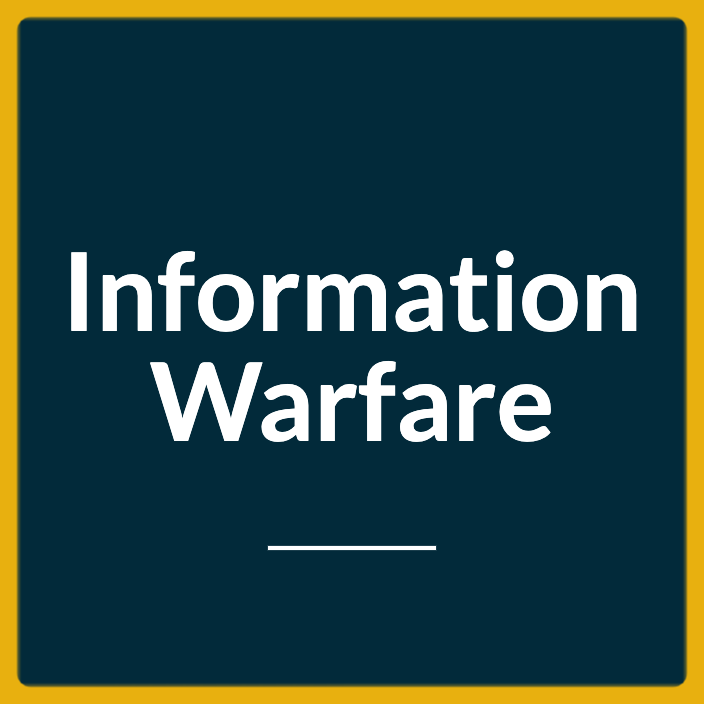Last Updated on March 4, 2024
This guide provides information that will help you with your decision to become a Navy Intelligence Officer during Fiscal Year 2024.
A Navy Intelligence Officer is a Restricted Line Officer in the United States Navy who analyzes every aspect of the enemy and all threats to provide intelligence support to the U.S. Naval forces. The designator code for Navy Intelligence Officer is 1830.
Let us go straight to the specifics.
What Does A Naval Intelligence Officer Do?

The success of vital U.S. military operations depends on knowing the enemy.
Analyzing the enemy’s strengths, weaknesses and capabilities is the responsibility of Naval Intelligence officers. They provide tactical, strategic and operational intelligence support to U.S. Navy forces, joint and multi-national military forces, and executive-level decision makers in our national government.
Serving as a Naval Intelligence officer will be exciting, challenging and rewarding but the experience brings an even deeper reward—the sense of satisfaction and pride that comes from being a part of the team that is quietly and competently protecting your nation’s security.
Intelligence Officers take on a wide variety of assignments, each one essential to the related mission or objective of the naval intelligence community.
This role may include:
- Leading the planning, development, testing and deployment of information systems crucial to the intelligence process
- Monitoring and analyzing maritime activities that pose a threat to national security, such as drug smuggling, illegal immigration, arms transfers, environmental mishaps and violations of UN sanctions
- Delivering near-real-time operational intelligence assessment to high-level decision makers
- Planning intelligence operations and managing intelligence programs
- Enabling the collection of human intelligence
- Leading teams of Enlisted experts who identify enemy targets for US or coalition forces
- Overseeing the work of Intelligence Specialists – Enlisted Sailors (no degree required) who help convert information into intelligence
Duty Assignments And Responsibilities
Duty assignments are varied and depend on your interests, background, and performance.
Typical areas of focus include:
- Operational Intelligence – Deliver near-real-time intelligence assessment to decision makers and commanders of naval, joint, and coalition military operations.
- Targeting – Lead a team of enlisted experts who identify enemy targets for subsequent prosecution by U.S. or coalition forces.
- Combatant Command Staff Officer – Develop plans for intelligence operations, manage intelligence programs, and produce supporting documents.
- Human Intelligence – Enable this challenging collection discipline.
- Tactical Support to Naval Strike Forces – Provide intelligence that drives carrier air wing and battle group operations.
- Intelligence Support to Special Operations and Low Intensity Conflicts – Serve as the intelligence officer for Naval Special Warfare forces or a joint Special Operations staff.
- Collection Management – Manage the prioritization of requirements and the tasking of resources to collect information through varied intelligence disciplines.
- Scientific and Technical – Take part in the long-term analysis of the technical strengths and weaknesses of foreign weapons systems.
- Regional Expertise – Become qualified as a Foreign Area Officer, or serve abroad as a Defense or Naval Attaché assigned to an embassy.
- Information Systems – Lead the planning, development, testing, and deployment of information systems crucial to the intelligence process.
- Civil Maritime Intelligence – Monitor and analyze maritime activities that pose a threat to national security, such as drug smuggling, illegal immigration, arms transfers, environmental mishaps and violations of UN sanctions.
Advanced Education
Intelligence Officers may qualify for studies leading to a master’s degree at the Naval Postgraduate School in Monterey, CA. Areas of study include intelligence, computer systems, financial management, education and training management, and space systems.
They may also be eligible for other postgraduate study opportunities at a variety of military institutions, such as the Naval War College in Newport, RI.
How To Become A Naval Intelligence Officer
To become a Navy Intelligence Officer, applicants must be an American citizen who is no older than 42 years old with at least a Bachelor’s degree in a field useful to intelligence work and must pass the Officer Aptitude Rating (OAR) exam with a score of 50 or higher.
The application criteria for Navy Intelligence Officer below is current as of May 2022, per the Navy Personnel Command. No updates have been issued so far.
Navy Intelligence Officer Basic Eligibility Requirements
| Citizenship | Navy Intel Officer applicants must be U.S. citizens. |
| Age | Must be at least 18 years of age upon commissioning. |
| Marital Status | There are no marital status restrictions for the Navy Intel Officer program, except that spouse must be a U.S. citizen. |
| Education | Navy Intel Officer applicants must be prospective or college graduates. Preferred fields of undergraduate study are international relations, political science, government, engineering, physical science, natural science, computer science or other academic fields related to intelligence. An undergraduate cumulative grade point average (GPA) of 3.0 or greater on a 4.0 scale is required. A waiver for 2.8 GPA may be available for otherwise competitive applicants. |
| Physical | Must meet Navy physical and medical standards in order to apply for the Navy Intel Officer program . |
| Aptitude | Navy Intelligence Officer program applicants must score a minimum of 50 on the Officer Aptitude Rating (OAR) (waiverable to 45). |
The most crucial requirement that you can fully control is your OAR score. It is the primary objective criteria upon which all applicants are compared against.
To maximize your chances of obtaining an exceptional OAR score, we only recommend this OAR Study Guide for your success. All others are mediocre at best.
Those selected for the Navy Intelligence Officer program will incur a four year active duty obligation upon appointment.
Training Cycle
Officer Candidate School (OCS)
Training for Intelligence Officers begins at Navy Officer Candidate School (OCS) at Newport, RI.
This intensive, 12-week curriculum includes:
- Military indoctrination
- Navigation, engineering, physiology and sea survival
- Officer development, naval history, world affairs, mathematics and physics
- Physical fitness and leadership
Upon successful completion of Navy OCS, candidates will be commissioned an Ensign, United States Navy.
Also Read: Navy OCS Guide for Officer Applicants
Basic Intelligence Officer Training
Once commissioned, Naval Intelligence officers report to the Navy and Marine Corps Intelligence Training Center in Virginia Beach, VA.
The focus of this training is on national security and intelligence organization; strategic, electronic, anti-submarine, anti-surface, anti-air, amphibious and strike warfare; counter-intelligence; air defense analysis and combat mission planning.
First Assignment
Following graduation from basic intelligence training and receipt of a special intelligence security clearance, Intelligence Officers go to an operational assignment.
This assignment is normally 30-months in length and is typically in an aviation squadron, on an air wing staff, or on board an aircraft carrier or amphibious command ship.
Intelligence Officers are key members of the Navy team from the beginning. Supervising the collection, analysis and dissemination of critical information is only part of the job. These new officers also develop strong leadership and management skills that will enhance their professional and personal growth.
More Information
If you want more information about becoming a Navy Intelligence Officer, the next logical step is to contact a Naval Officer Recruiter.
Let us start figuring out how you can benefit from the Navy – or if it is even the right move for you considering your current life situation.
Others were also interested in other Restricted Line jobs, such as Cyber Warfare Engineering Officer and Navy Oceanography Officer jobs. Check them out.
Hope this was helpful for your career planning.


